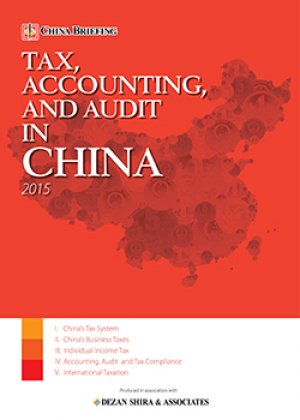China Regulatory Brief: New Food Safety Law, Import Tariffs to be Reduced on Consumer Goods
China to Enact New Food Safety Law in October
On April 24, the National People’s Congress approved and released the amended Food Safety Law, which will come into force on October 1, 2015. Hailed as the China’s ‘strictest food safety law so far’ the law requires companies in the food industry to establish a self-examination system and ensure that their food is traceable. Online food retailers will be held liable if they cannot provide the real name, address and contact information of a food distributor to consumers. The regulations governing the production of infant formula are much stricter. Infant formula producers are now required to report to the provincial Food and Drug Administration with their raw materials, additives, labels and relevant information for record filing. Food safety has become a top concern for Chinese people after the 2008 melamine scandal in which contaminated infant formula caused health damage to over 300,000 infants, killing six.
![]() RELATED: New Restrictions for Foreign Dairy Makers in China
RELATED: New Restrictions for Foreign Dairy Makers in China
China to Reduce Import Tariffs on Certain Goods
China’s State Council has recently decided to reduce import tariffs on certain consumer goods, including cosmetics and clothes by the end of June this year, aiming at boosting foreign trade and domestic spending. Meanwhile, China will set up more duty-free shops and implement consumer tax refund policies nationwide. Currently, the import tariff on cosmetics is 50 percent in China. Many luxury and consumer goods sold in China cost 20 percent more than abroad. On the other hand, China missed its foreign trade growth target again in the first quarter of this year. The year 2014 was the third consecutive year that China has failed to fulfill its foreign trade growth target.
China to Provide Subsidies for Shale Gas Exploitation Enterprises
On April 17, the Ministry of Finance and National Energy Administration jointly released a circular which decided to provide fiscal subsidies for shale gas exploitation enterprises from 2016. According to the Circular, the standard subsidy rate is RMB 0.3 per cubic meter during 2016–2018 and RMB 0.2 per cubic meter during 2019–2020. Enterprises that engaged in shale gas exploitation need to report to the local finance and energy departments with their ongoing projects and provide a Liquidation Report by the end of March each year.
China’s New Version of Direct Selling Business License Unveiled
On April 29, the Ministry of Commerce (MOFCOM) released a new version of the Direct Sales License. Companies holding the current 2006 version of the Direct Sales License may choose to switch over to the new license. In China, companies that sell their own products to consumers (i.e. without going through a distributor or wholesaler) need to obtain the Direct Sales License with the local branch of MOFCOM and the Administration for Industry and Commerce (AIC). The license shall be issued within 90 days from the date of receipt of the application form.
|
Asia Briefing Ltd. is a subsidiary of Dezan Shira & Associates. Dezan Shira is a specialist foreign direct investment practice, providing corporate establishment, business advisory, tax advisory and compliance, accounting, payroll, due diligence and financial review services to multinationals investing in China, Hong Kong, India, Vietnam, Singapore and the rest of ASEAN. For further information, please email china@dezshira.com or visit www.dezshira.com. Stay up to date with the latest business and investment trends in Asia by subscribing to our complimentary update service featuring news, commentary and regulatory insight. |
![]()
 Tax, Accounting, and Audit in China 2015
Tax, Accounting, and Audit in China 2015
This edition of Tax, Accounting, and Audit in China, updated for 2015, offers a comprehensive overview of the major taxes foreign investors are likely to encounter when establishing or operating a business in China, as well as other tax-relevant obligations. This concise, detailed, yet pragmatic guide is ideal for CFOs, compliance officers and heads of accounting who must navigate the complex tax and accounting landscape in China in order to effectively manage and strategically plan their China operations.
Using China’s Free Trade & Double Tax Agreements
In this issue of China Briefing, we examine the role of Free Trade Agreements and the various regional blocs that China is either a member of or considering becoming so, as well as how these can be of significance to your China business. We also examine the role of Double Tax Treaties, provide a list of active agreements, and explain how to obtain the tax minimization benefits on offer.
 Industry Specific Licenses and Certifications in China
Industry Specific Licenses and Certifications in China
In this issue of China Briefing, we provide an overview of the licensing schemes for industrial products; food production, distribution and catering services; and advertising. We also introduce two important types of certification in China: the CCC and the China Energy Label (CEL). This issue will provide you with an understanding of the requirements for selling your products or services in China.
- Previous Article China Regulatory Brief: Record Filing Procedures in FTZs, Bank Card Clearing Market Liberalization
- Next Article China to Allow One Location/Multiple Office Registrations











